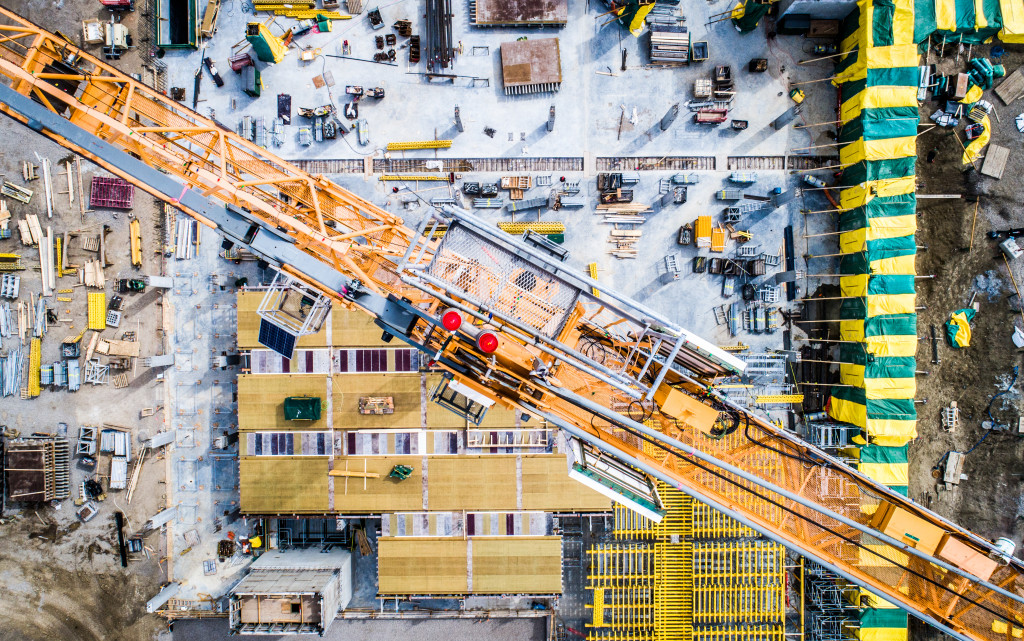The construction industry is something that, by its very nature, is constantly changing and evolving as new technology comes onto the scene. Sometimes these changes can be dramatic — such as the advent of concrete — and sometimes they’re more subtle — like the difference between a handsaw and a circular saw. Whatever the alteration may be, it’s paramount to keep up with these changes if you want your business to continue being successful.
But even though the construction industry changes and grows, one thing always remains true: starting and ending projects on time is crucial to their success.

Construction is a Network of Professionals
There are a lot of skilled workers in construction. It’s not just a problem of one. Many pairs of hands — from the architects and engineers to the manual laborers — make up a successful construction project.
When these professionals work together to plan out a project, they’ll need to take into account all the individual elements needed for the job — from concrete mixers and dump trucks, to scaffolding and steel beams — as well as how long it will take them to put each element in place. When you’re coordinating a dozen different people’s tasks, along with countless pieces of equipment, it can be tough to create a calendar that accounts for everything.
And if your team is delayed too often, it’ll end up costing your company more in hourly wages and overtime hours than if you had planned ahead for efficient work. Every one of these workers will be affected by the delays and will have to postpone projects that they’re working on until the construction project they’re assigned to is completed.
So when planning out each stage of a project, it’s important to consider not just who is doing what work, but how long each task will take them.
Starting on Time Saves Money
When you’re not able to complete projects on time, labor costs end up getting out of hand. If you don’t have a plan for completing tasks efficiently, you could be in trouble before even breaking ground!
Moreover, you’re missing out on future projects. When one project gets delayed, subsequent projects will have to be moved. At some point, the queue will be so high and your company will have to start losing out on potential clients.
So when scheduling each part of your project, try to give yourself enough time between stages so that everything is completed on time. This way, you’ll avoid letting costs climb so high that it’s impossible for your company to continue operating.
Plan Ahead
To avoid letting costs climb too high, you should consider how long each task will take your employees.
You’ll need to schedule enough time between tasks so that the area can be properly cleaned after one stage is completed. This might seem like a “duh” moment — but many companies don’t plan ahead for this cleanup work.
For example, if construction workers are installing an underground line and aren’t planning out their next steps carefully enough, they could end up damaging the surrounding land with heavy equipment or debris leftover from digging. Even worse, if they’re not cleaning up after themselves at the end of every day it could become a permanent eyesore in your community!
By scheduling ahead, you’ll be able to avoid these kinds of problems. You’d be surprised how many companies don’t take the time to create a schedule for cleaning up after work is done — and end up regretting their lack of foresight.
Having the right materials and equipment on-site before the project begins would avoid delays. So, when planning out construction projects, try to take into account all the pieces that will be necessary for construction work — from construction machinery to steel beams and scaffolding. Talk to the construction material and equipment suppliers to check delivery times.
Make sure that everyone is on the same page. All members of your team should know the plan and stick to it. By planning ahead and considering construction time frames, you’ll be able to get construction projects completed on time.
However, know when to pivot. Although you have a plan, certain things happen in a construction site that will cause delays. If the team is not prepared and construction time frames and construction equipment is not organized, you’ll see a lot of construction delays.
Crafting construction schedules can be complicated. But if you get it right, your construction projects will get done on time and on budget, which means avoiding costly construction delays and more satisfied clients!


